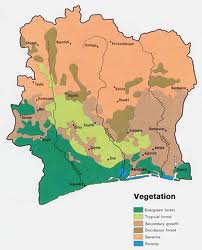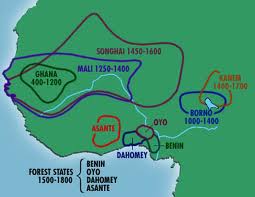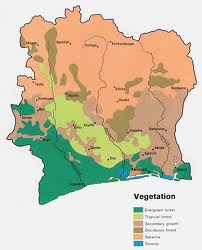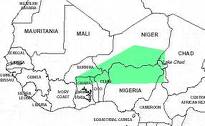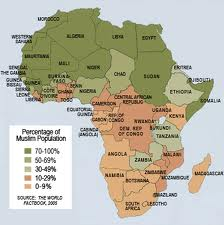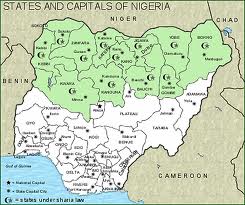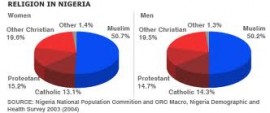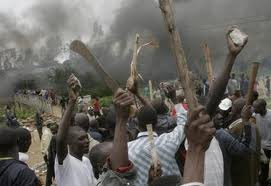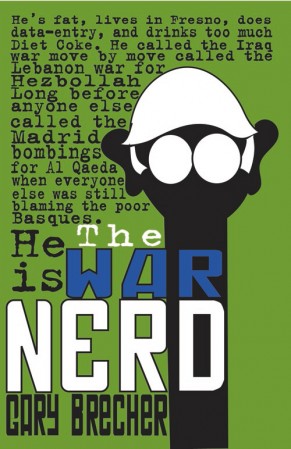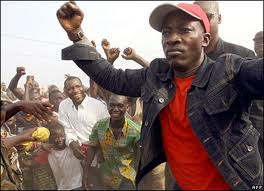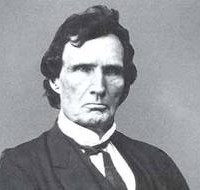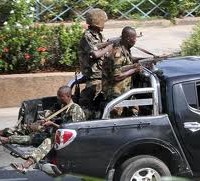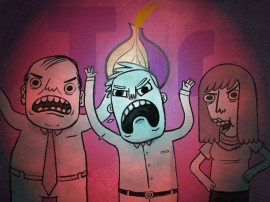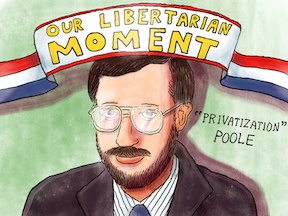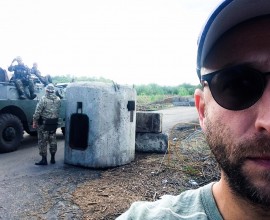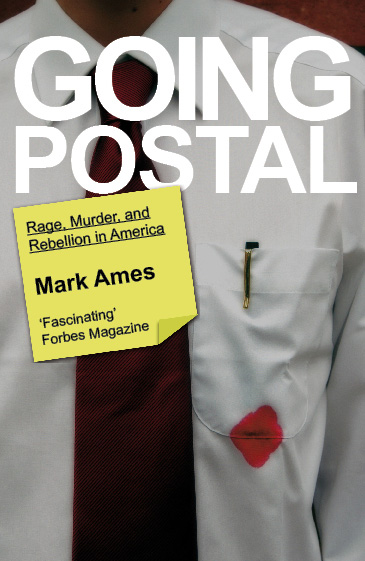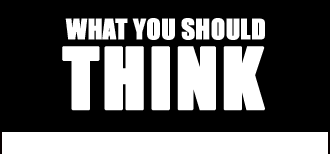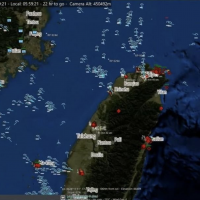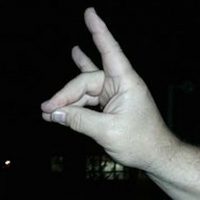Today we’ve got election riots in Northern Nigeria, a military mutiny in Burkina Faso, and massacres in Ivory Coast.
They look like separate stories, but they’re not. It’s all one story, a long, slow war between the coastal christianized people and the Muslim inlanders. It’s the same divide all down the line: vegetation, religion, ethnic groups, votes. Rain forest vs. scrub, goat herders vs. farmers, Gbagbo vs. Alassanne–they all overlap, and the biggest divide of all, the religious one, is mostly just a cover for an old tribal divide. We like to think a person changes religion when they see the light, one person getting the beam of light straight from God like Saul before he changed his name and franchised the operation.
It’s not like that, never has been. If your ancestors came from Germany and your family’s Lutheran, it means most likely the Protestants were winning the Thirty Years War when they marched into your ancestors’ valley. If your family’s Catholic, Wallenstein was having one of his better days, before the loopy astrologers got to him. If your folks came from England, you know why you went Protestant: Henry needed sons and that Catholic girl he married wasn’t up to it. Your great-great grandpa didn’t see the light of true religion, he got the word at the end of a pike: “New church in town, any objection?” Not a lot of objections when a feral drunk in the King’s uniform is holding a dagger to your son’s ear.
In other words, religion is a tribal deal. Whole tribes converted at once, in Europe just like they did, and still do, in Africa. Except it’s current history in Africa, whereas it’s old dry shit in Europe, unless you’re in Kosovo or Belfast. Religion isn’t meant to be a personal thing between you and god. Never was. That’s just another democratic lie. Religion is always meant to be unanimous, and there are ways of making sure it stays that way. Like war. So religious divides are usually ethnic divides, and the borders between the groups on the maps usually have those crossed-swords markers identified by the map key as “major battle.”
African empires: Sahel vs. rain forest
That’s why in the old days, they called wars “the movements of the peoples.” That’s what’s happening in West Africa: the peoples are on the move, wrestling, pushing to see who’s going to be THE tribe. It divided into “countries,” and those countries are real in some ways, but the tribal/religious divide is bubbling under all that like the supervolcano under Yellowstone. West Africa has real borders, old borders, under the new “country” borders the colonizers settled in Berlin in 1885. It helps if you think of those old, real borders, instead of imagining that a riot in Nigeria is a separate story from the war in Ivory Coast. It’s all one blob of ethnic lava pouring up through whatever weak spot is handy.
So you can start with the plant life, like a nature documentary. West Africa has a wet coastal strip, inland scrub and then Sahel quasi-desert that’s turning into full-on desert year by year. You’ll notice that the divide between wet coast and dry inlands cuts across all the national borders, Ivory Coast, Nigeria, the whole bunch. That’s the first layer of the ethnic geology here, if you can call it that:
Ivory Coast Veggie Map: Botany is destiny.
Different habitats, different folks: the dry north was always nomad country, too dry to farm but OK for goats and camels. The Hausa/Fulani herders owned the Sahel strip in West Africa long before “Ivory Coast” and “Nigeria” were made up:
Hausa: Cutting right across those national borders
And then came Allah. Islam came south across the Sahara with the caravans about 1300 years ago. The desert people took to it; it was a desert religion, after all. The forest people along the coast kept to their own gods until the Christians started grabbing trade posts along the coasts. And naturally every time they established a slave transshipment outpost they assigned a preacher or a priest to it. Not that the Muslims have the high ground here; most of the caravans that brought Islam south took African slaves back north. Religion and slavetrading go way back, I won’t say any more than that.
The result is a nice little sand painting looking ethno-religious divide that cuts perfectly halfway through all those new countries.
Islam: the only green that’s getting bigger in Africa.
In Nigeria, you get a perfect illustration in this map showing which provinces have Sharia law and which don’t.
Sharia in green, natch.
The provinces in green voted against Goodluck Jonathan, the Igbo Christian who just won in Nigeria. (And who also has the coolest hat of any head of state in history.)
Goodluck Jonathan: He’ll need it.
So in the Ivory Coast you’ve got the French and IMF siding with the Muslim North against the Christian coast, which reacts with massacres and riots; and in Nigeria you’ve got the Christian coastal guy beating the Muslim backed by the North…which reacts with riots and massacres.
They always deplore these riots, and I’m sure they’re not fun to be in unless you’re one of the choppers rather than the choppees, but I’m not sure they violate democracy. These votes are head counts at best, seeing if there’s more of us or more of you. And if you win and can say there’s more of you, the natural response is, “Well, we want it more, just watch!” Any coach would have to approve. You’ve got to want it, etc.
The question of who wants it more gets especially hot if you’re about equally divided, and in that way Nigeria’s like a perfect test lab for ethnic/religious war, damn near 50/50:
The Nigerian Pie: Remember how Lucerne Neapolitan Ice Milk never satisfied anybody?
In that way, seems to me, you could take this last illustration from another Nigerian election and say like the hippies always do: “This is what democracy looks like.”
This is what democracy looks like when people take it seriously.
Hey Nerdoids and Nerdettes! Note Gary Brecher’s functioning email: gary dot brecher at gmail dot com
Would you like to know more? Gary Brecher is the author of the War Nerd. Send your comments to gary dot brecher at gmail dot com. Read Gary Brecher’s first ever War Nerd column by clicking here.
Click the cover, buy the book!
April 18th, 2011 | Comments (45)



